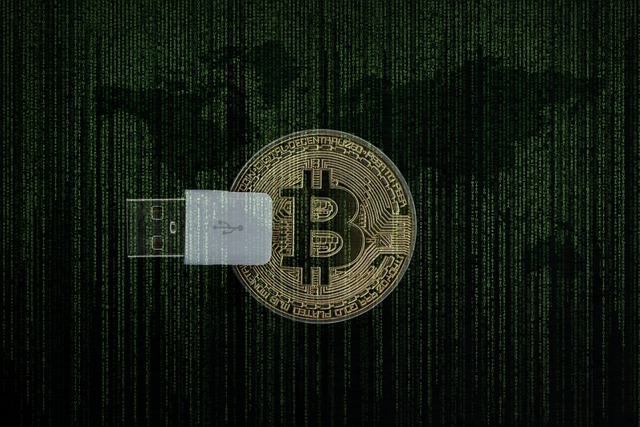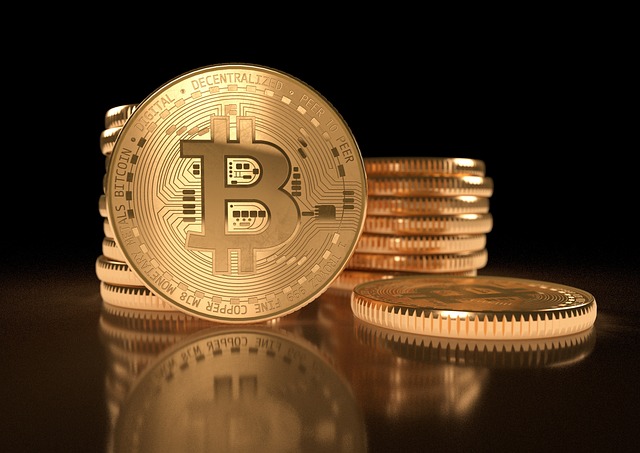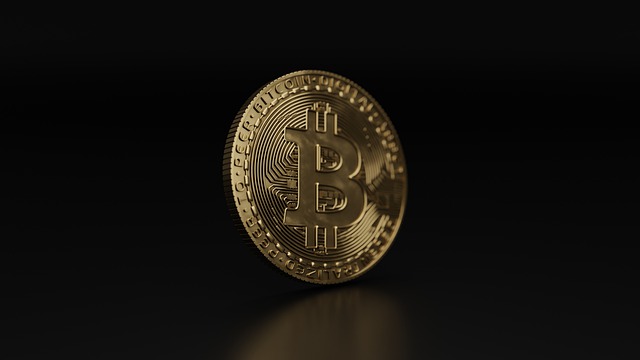The Transformative Power of DeFi: Advantages for All
The Transformative Power of DeFi: Advantages for All

Exploring Financial Inclusion: How DeFi is Breaking Down Barriers
Decentralized Finance (DeFi) is rapidly gaining popularity as a transformative force in the world of finance. By leveraging blockchain technology, DeFi aims to democratize financial services and promote inclusion for individuals who have traditionally been excluded from the traditional financial system. This new approach eliminates the need for intermediaries such as banks and financial institutions, providing individuals with direct access to financial services and opportunities.
One of the key ways in which DeFi is breaking down barriers is by allowing individuals to have full control over their own finances. In traditional financial systems, individuals often have limited control over their funds, relying on third-party intermediaries to manage and access their money. With DeFi, individuals can maintain ownership of their assets, reduce the risk of censorship or freezing of funds, and participate in financial activities without the need for approval from centralized entities. This newfound freedom empowers individuals to make autonomous decisions about their finances, offering a level of control that has been unprecedented in traditional financial systems.
• DeFi allows individuals to have full control over their own finances
• Individuals can maintain ownership of their assets
• Reduces the risk of censorship or freezing of funds
• Participate in financial activities without approval from centralized entities
• Offers unprecedented level of control compared to traditional financial systems
Empowering Individuals: The Freedom to Control Your Own Finances
In today’s financial landscape, individuals are seeking more control over their own finances. Gone are the days when people relied solely on traditional financial institutions to manage their money. With the emergence of decentralized finance (DeFi), individuals now have the freedom to take charge of their financial future.
DeFi platforms enable users to access a wide range of financial services without the need for intermediaries. This means that individuals can directly manage their funds, invest in various assets, and even lend or borrow money without the constraints imposed by traditional financial systems. The ability to control one’s own finances empowers individuals by providing them with greater flexibility, autonomy, and the opportunity to make informed decisions. No longer bound by the limitations of centralized institutions, individuals can explore new avenues for financial growth and achieve their financial goals with confidence. The empowerment offered by DeFi opens up a world of possibilities for individuals to truly take ownership of their own financial destinies.
Unlocking Global Opportunities: DeFi’s Impact on Cross-Border Transactions
With the rapid growth and adoption of decentralized finance (DeFi), new opportunities are emerging for individuals and businesses looking to engage in cross-border transactions. Traditionally, such transactions have been burdened by lengthy processes, high costs, and limited accessibility. However, DeFi is changing the game by offering a more efficient and inclusive approach.
One of the key advantages of DeFi in the context of cross-border transactions is its ability to eliminate the need for intermediaries.

Reducing Costs: How DeFi is Revolutionizing Financial Intermediaries
Decentralized Finance (DeFi) is transforming the landscape of financial intermediaries by significantly reducing costs. Traditionally, when individuals or businesses engage with financial institutions, they encounter various fees and charges that elevate the overall cost of transactions. With the emergence of DeFi, these financial intermediaries are being disrupted as decentralized platforms leverage smart contracts and blockchain technology to streamline processes and eliminate unnecessary costs. The direct peer-to-peer nature of DeFi enables users to transact without the need for intermediaries, cutting out middlemen and associated fees. As a result, individuals can now access financial services and engage in transactions at a fraction of the cost previously incurred.
Moreover, DeFi is revolutionizing the lending and borrowing landscape by offering cost-effective alternatives to traditional banking systems. In the traditional lending market, individuals often face high-interest rates and stringent criteria to secure loans. However, DeFi lending platforms leverage the power of peer-to-peer lending, allowing individuals to lend and borrow directly from one another. By removing the need for intermediaries, DeFi platforms reduce costs and eliminate unnecessary intermediation fees, resulting in lower interest rates for borrowers and higher returns for lenders. This democratization of lending not only makes access to credit more affordable but also provides an opportunity for borrowers who may have been excluded from the traditional financial system to obtain much-needed funds.
Promoting Transparency: The Role of DeFi in Building Trust
Transparency plays a crucial role in building trust within the financial system. Traditional financial institutions have often been criticized for their lack of transparency, leaving individuals with little insight into how their money is being managed. This lack of transparency has led to a decline in consumer trust and raised concerns about potential fraudulent activities. However, DeFi, or decentralized finance, aims to change this narrative by promoting transparency as one of its core principles.
In the world of DeFi, transactions are recorded and stored on a public blockchain, providing a transparent and immutable ledger of financial activities. This means that users can easily track and verify transactions, ensuring that there are no hidden fees or unauthorized activities. The transparency offered by DeFi not only promotes trust between users but also encourages participation from individuals who have historically been excluded from the traditional financial system. With clear visibility into the inner workings of DeFi protocols, users can make informed decisions and have confidence in the integrity of the system.
Enhancing Privacy: DeFi’s Approach to Protecting User Data
In the realm of decentralized finance (DeFi), the protection of user data is a top priority. DeFi platforms, unlike traditional financial institutions, aim to enhance privacy by minimizing the collection and storage of personal information. By utilizing blockchain technology, DeFi ensures that user data remains private and secure. Instead of relying on centralized databases, where sensitive information can be vulnerable to breaches, DeFi platforms distribute data across a network of computers, making it nearly impossible for hackers to gain unauthorized access. This approach not only safeguards user privacy but also empowers individuals to have full control over their personal information, fostering a sense of trust in the DeFi ecosystem.
Furthermore, DeFi’s approach to privacy extends beyond the protection of user data. It also promotes transparency by allowing users to maintain their anonymity while conducting financial transactions. Unlike traditional banking systems, which often require individuals to disclose their identities, DeFi platforms enable users to engage in transactions without revealing personal details. This anonymity not only protects users from potential fraudulent activities but also opens up opportunities for those individuals who may not have access to traditional banking services. By prioritizing privacy in this way, DeFi is breaking down barriers and creating a more inclusive financial landscape for all.
Improving Efficiency: DeFi’s Streamlined Processes and Automation
Decentralized Finance (DeFi) has rapidly emerged as a game-changer in the financial industry, with its ability to improve efficiency through streamlined processes and automation.

Furthermore, DeFi’s automation capabilities have revolutionized various financial operations. For instance, lending and borrowing platforms powered by DeFi automatically match lenders with borrowers, eliminating the need for a middleman. This not only speeds up the process but also ensures fair and transparent loan terms. Additionally, DeFi protocols enable automated market-making, where liquidity is provided automatically through smart contracts. This not only enhances market efficiency but also eliminates the reliance on centralized exchanges, consequently reducing the risk of manipulation and improving overall trade execution.
In conclusion, DeFi’s streamlined processes and automation are driving significant improvements in efficiency within the financial landscape. By eliminating intermediaries, leveraging smart contracts, and automating various tasks, DeFi has created a more efficient and transparent financial ecosystem. As the technology continues to evolve and mature, we can expect further enhancements to the efficiency of financial transactions and operations.
Stimulating Innovation: How DeFi is Encouraging New Ideas and Solutions
DeFi has emerged as a catalyst for stimulating innovation in the financial sector. By enabling individuals to participate in decentralized networks, it has empowered a wide range of users to explore new ideas and find creative solutions to existing challenges. The permissionless nature of DeFi platforms removes traditional barriers to entry, allowing anyone with an internet connection to contribute and experiment with financial products and services.
One of the key ways that DeFi encourages innovation is through its open-source nature. By making the underlying code accessible to the public, developers are encouraged to collaborate and build upon existing projects.

In conclusion, DeFi’s ability to stimulate innovation is transforming the financial landscape by encouraging new ideas and solutions. Through its open-source nature and the use of smart contracts, it empowers individuals to contribute to the development of decentralized financial systems. As more people get involved and explore the possibilities of DeFi, we can expect to see continued advancements and an increasingly diverse range of innovative solutions to long-standing financial challenges.
Mitigating Systemic Risk: DeFi’s Resilience in the Face of Traditional Market Challenges
DeFi, or decentralized finance, has emerged as a resilient alternative in the face of traditional market challenges, mitigating systemic risks along the way. Unlike traditional financial systems, which are often centralized and susceptible to failures, DeFi operates on decentralized platforms, effectively distributing risk across a network of participants. This decentralized nature of DeFi allows for greater transparency, eliminating the need for intermediaries and reducing the potential for manipulation or corruption.
Furthermore, DeFi platforms utilize blockchain technology, ensuring that transactions are recorded immutably and securely. This technology provides a high level of resilience against fraud or data breaches, as each transaction is verified and stored on a distributed ledger that cannot be altered. By leveraging these innovative technologies, DeFi is able to withstand traditional market challenges and provide individuals with a robust and reliable financial system, empowering them to have more control over their own financial destiny.
Overcoming Regulatory Hurdles: The Future of DeFi and Regulatory Frameworks
With the growth of decentralized finance (DeFi), regulators around the world are grappling with how to adapt existing regulatory frameworks to this emerging sector. Although DeFi offers numerous benefits in terms of financial inclusion, efficiency, and innovation, its decentralized nature poses challenges from a regulatory standpoint. While some argue for a hands-off approach to allow for experimentation and growth, others advocate for stricter regulations to protect consumers and ensure market stability.
One of the key issues regulators face is the question of how to classify and regulate various DeFi protocols and tokens. Traditional regulatory categories may not adequately capture the complexities of decentralized systems, making it difficult to determine which rules and requirements should apply. Additionally, the global nature of DeFi presents a challenge for regulators who must navigate cross-border transactions, differing legal frameworks, and jurisdictional issues. Balancing the need for regulatory oversight with the preservation of DeFi’s unique features is essential for fostering innovation while protecting participants in this evolving ecosystem.
What is DeFi?
DeFi, short for Decentralized Finance, refers to a financial system built on blockchain technology that aims to provide open and inclusive financial services without the need for intermediaries like banks.
How does DeFi empower individuals?
DeFi gives individuals the freedom to control their own finances by allowing them to access and use financial services directly through decentralized applications (DApps) without relying on traditional institutions.
How does DeFi impact cross-border transactions?
DeFi unlocks global opportunities by enabling seamless and efficient cross-border transactions. With DeFi, individuals can send and receive funds across borders quickly and at a lower cost compared to traditional methods.
How does DeFi revolutionize financial intermediaries?
DeFi reduces costs by removing the need for traditional financial intermediaries. By leveraging smart contracts and blockchain technology, DeFi eliminates unnecessary fees and delays associated with intermediaries.
What role does DeFi play in building trust?
DeFi promotes transparency by providing a transparent and auditable transaction history on the blockchain. This transparency helps build trust among users as they can verify transactions and ensure fairness.
How does DeFi protect user data?
DeFi takes a proactive approach to enhancing privacy by allowing users to retain control over their personal data. With decentralized systems, users can keep their information secure without relying on centralized databases.
How does DeFi streamline processes and improve efficiency?
DeFi automates processes through smart contracts, eliminating the need for manual interventions. This automation reduces human error, speeds up transactions, and increases overall efficiency in financial operations.
How does DeFi encourage innovation?
DeFi stimulates innovation by providing a platform for developers to experiment and create new financial products and services. The open nature of DeFi allows for collaboration and the development of innovative solutions.
How does DeFi mitigate systemic risk?
DeFi demonstrates resilience in the face of traditional market challenges by reducing the concentration of risk. Decentralization and diversification of assets in DeFi systems help mitigate systemic risks that exist in centralized systems.
What is the future of DeFi and regulatory frameworks?
Overcoming regulatory hurdles is crucial for the future of DeFi. As the industry continues to grow, regulatory frameworks will need to adapt to ensure consumer protection without stifling innovation in the DeFi space.
Todays Featured Product:
Buy, exchange and grow your crypto securely with a Ledger hardware wallet, combined with the Ledger Live app. It’s never been easier to keep your crypto safe and accessible. Buy direct from Ledger.com and get todays Special Offers Here.




